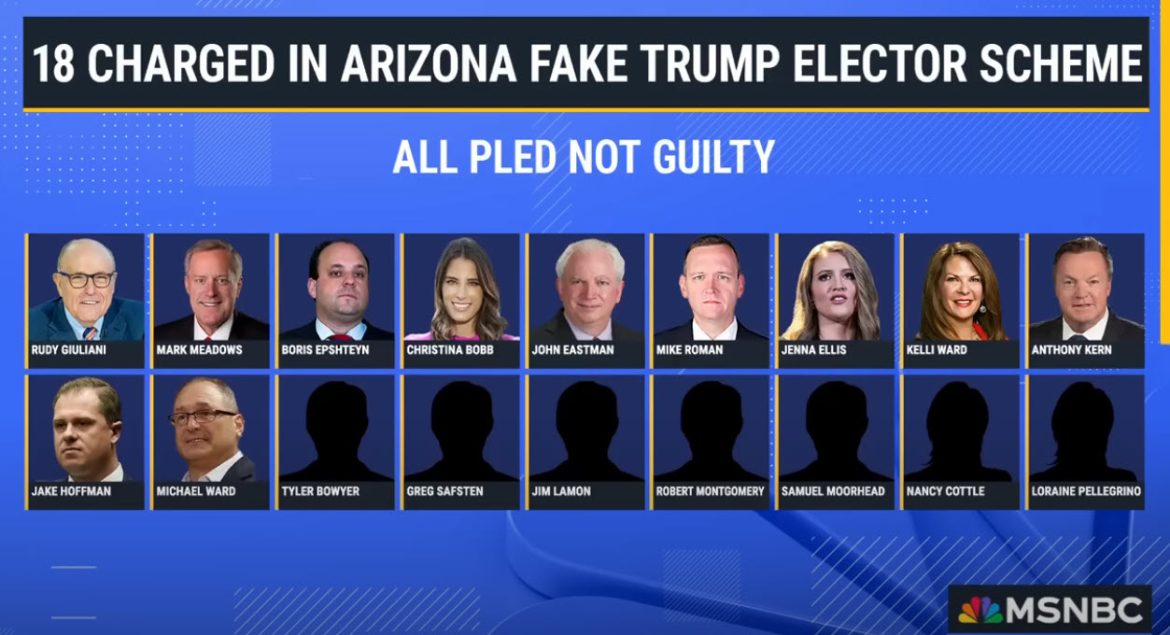All 18 defendants in the Arizona election case, including prominent Trump allies such as former attorney Rudy Giuliani and former Chief of Staff Mark Meadows, have pleaded not guilty to charges of forgery, fraud, and conspiracy. The charges stem from allegations that they attempted to overturn the results of the 2020 presidential election in Arizona.
Prosecutors argue that Giuliani, Meadows, and other defendants conspired to manipulate the election outcome in the Grand Canyon State. The case is part of a broader legal effort, with similar charges filed by prosecutors in Georgia, Nevada, Michigan, and Wisconsin, aiming to address purported attempts to undermine the democratic process.
Among those pleading not guilty are Trump legal advisers Jenna Ellis and Boris Epshteyn. “The evidence is strong,” prosecutors assert, maintaining that the actions of the defendants constituted a coordinated effort to subvert the election.
Rudy Giuliani, who has also faced charges in other states, continues to deny any wrongdoing. His legal team argues that the charges are politically motivated and part of a broader campaign against Trump supporters.
The Arizona case is closely watched as it may set precedents for how election-related conspiracies are prosecuted in the United States. Legal experts emphasize the importance of these proceedings in upholding the integrity of the electoral process and deterring future attempts to interfere with elections.
As the legal battle unfolds, all eyes are on the upcoming court dates and the potential implications for the defendants and the broader political landscape. The outcomes of these cases could have significant repercussions for election law and political accountability in the future.



